In a time in America, I’m dubbing “the awakening”, where non-Black identifying people all over the country are finally listening to the voices of Black Americans, I debated adding my voice to the conversation. Everyone is sharing books, everyone is asking, “What can I do?”, everyone is donating, everyone is sharing news. But when it came down to it, I am a Black friend, a Black colleague, and a Black woman all the time. With that in mind, I encourage you to read and reflect on my experiences in being Black in the workplace. We keep telling ya’ll to “do the work”, here it is.
On Being Black at Work
Put Some Respek on My Name.
In my first professional role after graduating from college, I had a colleague who continually pronounced my name wrong. My name is very phonetic (S-H-A-V-O-N-N-A), and once I correct you, it shouldn’t be difficult to get it right. After a year on the job, I transitioned to another role, and on my last day, my colleague said something to the effect of, “It’s a bummer you’re leaving, I just started pronouncing your name correctly!”. It took them an entire year to decide that they would start respecting me and pronounce my name correctly.
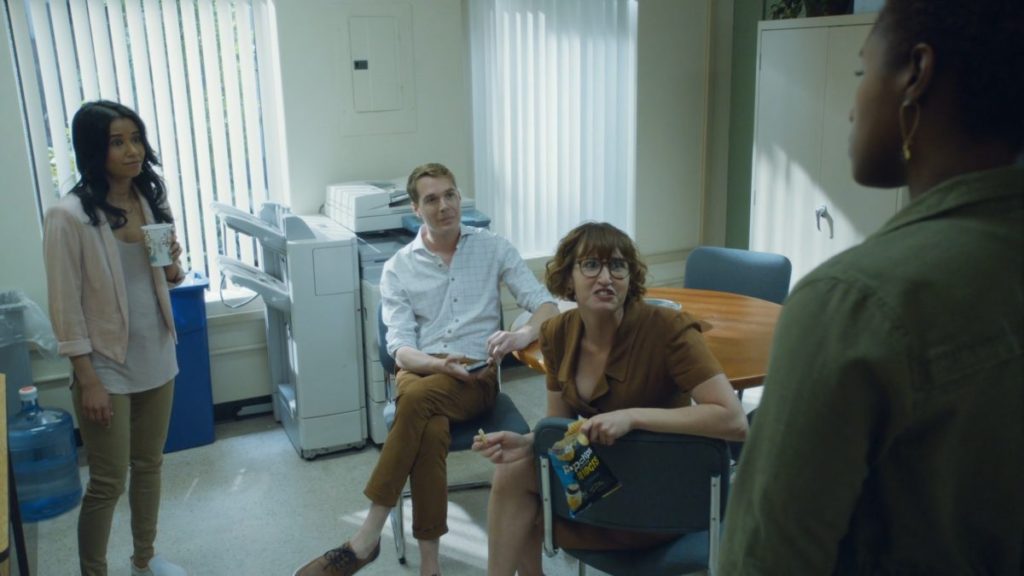
Assets and Liabilities.
I once had a colleague offer some unsolicited professional advice to wear clothes that didn’t show off as she described them, “assets”. What bothered me the most is this woman is built like a refrigerator box, so she had no place commenting on my body. She then encouraged me to reach out to a supervisor who was a 60+ year old, lesbian, white woman if I wanted suggestions on clothing.
She has an attitude.
After about 3 weeks in a new job, a colleague took me out to lunch. She asked me how I felt about the job as she noticed I was quite reserved. Just by being out of the office, I felt comfortable telling her I felt isolated as I was the youngest person in the office by 15+ years and the only person of color. She agreed and also mentioned that my other colleagues found me “unfriendly and a bit rude” because of my reserved demeanor.
Though she may not have realized it at the time, she was a huge ally and mentioned to these very catty women how, “Maybe the fact that she’s in an entirely new environment and feeling very alone, might have something to do with her attitude. Have you considered reaching out to her?”. We finished our lunch and had a great conversation. When I arrived home that day I cried because I was so grateful to have someone work to understand my feelings rather than make assumptions about me.
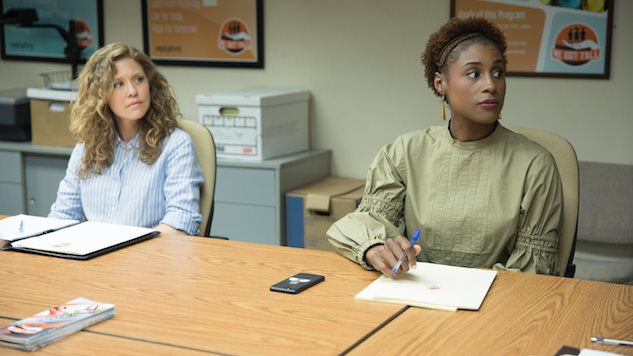
What do Spanish people look like?
Early on in a job, my coworkers found out I was Puerto Rican during the middle of a staff meeting. After a vibrant discussion of things like, “Do you speak Spanish?” and “Do you know how to make Spanish food?”, I was hit with the, “BUT YOU DON’T LOOK SPANISH!” quip. Having the confidence to speak up and hold my own, I very swiftly told my colleagues, “We don’t all look like JLo”. Though I felt compelled to get into the nuances of the Pan-African Diaspora and what being Afro-Latinx was, I figured it was best to let my colleagues stew in their ignorance and let our awkward silence linger until my boss got back to our meeting agenda.
Do you know so and so?
After a few years, more young folks and POC’s were hired at my company. Seemingly before I knew, my colleagues also became aware. Eager to make me feel included, one colleague offhandedly mentioned there was a new girl in another office and that I should get to know her. She said, “I think you would get along, you have a lot in common!”. And that was it. With that phrase, I knew she meant the girl was Black.
Though she meant well the implication that, because she and I are both Black, by default we would get along is so comically wrong it’s become a tired trope in workplace TV dramas. Now don’t get me wrong, I stayed looking for other young Black women to meet, but for a white colleague to feel like it’s their place to make those connections is an overstepping of personal boundaries. Imagine if every time a 48-year-old white woman started at our company I just forwarded her name and email to my coworker, encouraging her to reach out, she’d be extremely confused and offended.
WTF?!
A colleague once addressed me as “Yo!”. Not my name, not hello, but a literal, “YO!” to get my attention. I cursed them out in my most polite white lady voice immediately after.
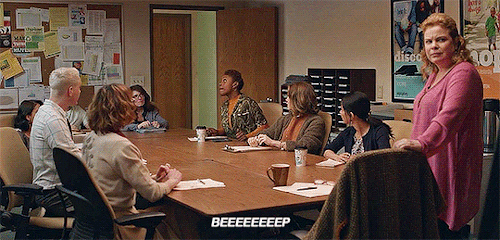
Working in Trumps America.
I’m not going to say I saw Trump getting elected, but I also have no faith in this country so as the votes rolled in and it became more apparent he won, I was resigned and tried to find peace. The next day in the office was terrible. Not because I was in a bad mood, but because everyone in my office was an emotional wreck. My boss got donuts for us out of the blue, my one colleague was silent all day, and another could not stop crying. I was so confused.
Honestly, November 9, 2016, was one of the most comically amusing days of my life. By about 9 AM I was at peace. I accepted the fate of our country and was relatively productive for the rest of the day. I shut my door at one point because I needed a moment. I took that moment to call some friends and family and cackle at the displays of white guilt I was witnessing. For the first time in your life, you realized America wasn’t that great.
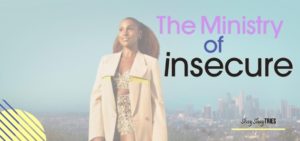
I can’t speak for all Black folks, but I feel like many of us on that day were no more shocked than we were amused by the antics of white people on both sides. The racist, bigoted whites of their world did their thing and I was unphased. But the liberal whites, you were the best. Crying, and boohooing, apologizing and acknowledging me in ways you never had. Ya’ll did everything you could to make sure we knew you were not the bad ones who voted for him. As I’m sure ya’ll are aware now, it doesn’t matter. You were complicit. Most of all, you did not change (cc: more stories below). You did your women’s marches and performative acts of anti-racist behavior, but you didn’t change. And here we are 4 years later, in the same damn position.
Don’t touch my hair.
On my last day of work in one role, I was in good spirits. I did my rounds, said my goodbyes, and was ready to walk out of my office for the last time. With literal minutes left in the day, a quiet colleague of mine walked into my office and straight-up said, “I’ve always wanted to know this and now that you’re leaving I just have to ask…can I touch your hair?” I’m ashamed of it now, but I did let them touch my hair.
My justification was, “they earned it”. They’re not a stranger and I guess I convinced myself that I was comfortable with it. I was not. What hurts the most was that for many years, I had done so well at sidestepping and avoiding in-depth convos about my hair. For many years, I felt like my colleagues understood it was rude to ask to touch my hair. But I was vulnerable. I was hurt that deep down my colleague knew she was wrong which is why she waited until she knew she’d never speak or see me again to ask to touch my hair, I let her. I gave her that satisfaction and I left a little less happy that day.
African Americans.
I hate how white folks refer to Black people in America. When they don’t want to sound offensive, they use the term “African American”. Though this phrasing is highly divisive in our own community, I have realized by and large the preferred descriptor of anyone of African descent or culture (including those from African countries and the Caribbean) in public is Black. Though folks may be willing to discuss the nuances of their Blackness, Black is is still more than acceptable.
I don’t remember when, but at a certain point in my career, I just started aggressively correcting my colleagues. Everything about the way they’d use the phrase “African American” hurt my spirit. If you are Black, you know exactly what I mean. Their tone changes, their body language shifts, they whisper shout it around you in an awkward, “Can I address race and color in this conversation?” sort of way. There is no inherent harm in addressing POC by what they are, using phrases that soften the impact aren’t effective. Just say what it is, acknowledge the differences exist and move forward.
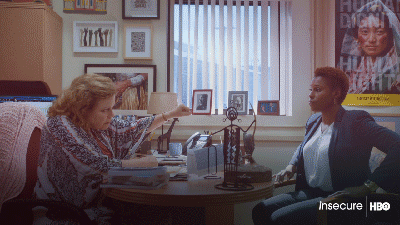
WE LOVE DIVERSITY!
Much of my career has been in Diversity, Equity, & Inclusion work and in one position, it became apparent very quickly that though in the title I was the “supporter of Black folks”, my office wasn’t going to do the work it would take to make that vision a reality. One day, I went off. I voiced how frustrated I was by the lip service we did when it came to supporting Black people. WE WANT DIVERSITY! WE WANT BLACK PEOPLE! Yet every time exactly what they were looking for appeared, there was a round of criticism and a swift rejection. White people, you can’t have it both ways. You can’t want diversity, put diverse folks in those positions, and then when it comes time to do the work, continually dismiss their opinions, perspective, and insights.
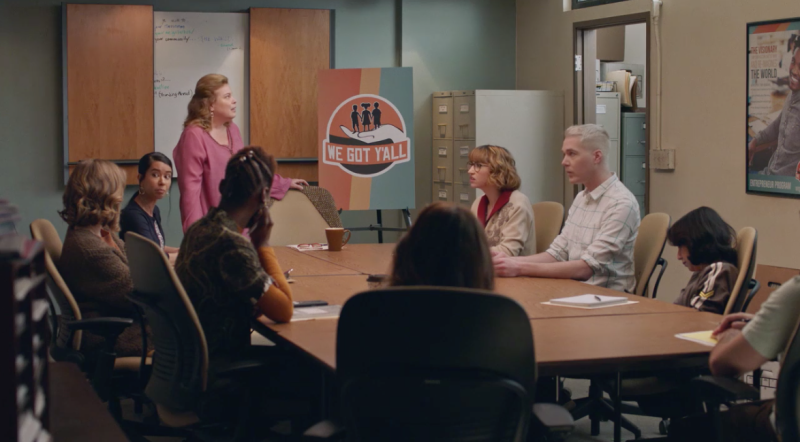
As a sidebar, in this whole #HIREBLACKPEOPLE2020 movement, I don’t know who told you all it was okay, but asking for 8-10 years experience for a role in DE&I is outrageous. Being a POC, a woman, a queer-identifying person, someone with a disability, that is the experience. You will never find who you want because you constantly move the goalpost.
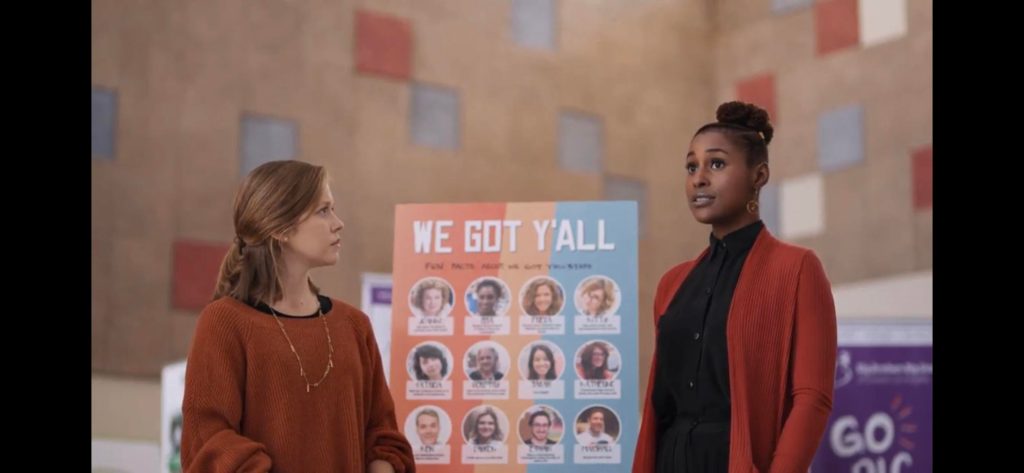
There can only be one.
A phenomenon I’ve become more acutely aware of in the workplace is the “model negro” competition. In my early career roles, I had to work with folks outside of my office who were in positions of diversity, equity, and inclusion. Often Black women serve in these roles which means they too are the first, only and different, in their office as well. Without a doubt, the most openly disrespectful, demeaning, and infuriating treatment I’ve received in the workplace has come from other people of color. That’ll be another blog post for another day, but I would be remised not to share the worst offense now.
I was working on a joint event with another office and everything that went wrong could’ve gone wrong. Up until the point where my supervisor and the other folks on our team were willing to call it a full-blown emergency, the only other Black woman who supported the work had been useless. She spent most of the day MIA and when it became clear our problem was now a crisis, she was chatting on her phone. I tried to get her attention and was given the Black momma ‘I’m on the phone’ finger wave.
Finally, after about 20 minutes, she hastily calls a meeting with me and my boss. Out of nowhere, she decides to take the lead and starts berating me with questions, concerns, and nonsensical statements. At this point, I am fuming because she has no idea what is going on but is treating me like I don’t either. After a heated exchange and as my very white and male supervisor stood in the wings, I was told to “watch your tone when you address me”, by this Black woman.
I wish I had a badass, retort. I wish I could’ve clapped back. But I was so stunned by the audacity of a Black woman to tell a subordinate Black woman to watch her tone in front of a white person…I was so thrown off by her (and I hate using this word) combative behavior in front of my boss…I was so shocked that after spending an entire day problem solving and supporting our team that I was reduced to feeling like a child, that I said nothing. My boss equally as stunned said nothing.
I promptly got up, walked past them both, and went to a small office to cry feeling humiliated, embarrassed for her, and upset. I was disappointed in her for putting us in a position where a white person witnessed disrespect. Despite all this, he did nothing to defend me. It set the tone for her treatment of me whenever we worked together. She always had to be the “best negro”. She continually disrespected me, belittled me, and treated me like her bitch. And my boss allowed it.
Now, don’t get me wrong, Black woman most certainly need to hold space in the workplace. But, when they manipulate that power in a way that is destructive to other POC, it has a devastating consequence. White people, it is okay to hold Black folks accountable when they are clearly in the wrong.
This the type of Black woman in leadership I have promised to never become.
The First, Only, and Different

As I am often the first, only, and different in my workplace, it can often feel like a burden.
Though I am currently unemployed, my next role will be one that allows me to be in a truly diverse workplace. In my time in predominantly white workplaces, I internalized so much stress and pressure that I have lasting repercussions. My therapist informed me that it was psychosomatic stress, the phenomenon where your body reacts to external stressors in a way that becomes debilitating to your mind, body, and overall well being.
Each day walking over the threshold into my office caused me great physical pain. I’d breathe deeply and pep myself up with encouraging mantras and music (typically Cardi B). I kept a mirror in my office because I wanted to see how I looked, but also because of the sting of my colleague’s words never fully made me feel comfortable in my workplace attire. I was obsessive about my hair in a way that caused me to become sensitive about every other aspect of my appearance like my makeup, the length of my nails, my shoes, no matter how I looked, it often elicited an unwarranted comment.
I became a master of deflection, whenever a “Black Issue” arose, I refused to address it. My favorite topics of conversation at work revolved around sports, TV shows, and cooking. I refused to talk about Black topics at work because I don’t speak for all Black people.
Black people are not a monolithic group. What I think and feel is very different from how other POC may feel. For me, giving deep insights and reflections on the Black experience in the workplace does more harm than good. I’ve seen white folks linger onto these words like soundbites and then use them to whitesplain things to me. We are called articulate and become tokenized caricatures that give our white colleagues a pseudo sense of understanding Black America.
It is not my job to be Black in the workplace. It is who I am, but it is not in my job description. I’m not saying, “Let’s ignore race and color! We all work the same!”. What I am saying is, when Black people step into a role, there’s an invisible set of on the job behaviors and expectations we all burden. But I am done. It is not my job.
Will 2020 Bring a Change?
In 2020 we as a collective community have called on non-Black identifying folks to do the work. That is what I am asking today. I am not looking for an apology for past transgressions and microaggressions. I am not expecting that things just magically get better. But I do need folks to do the work. Figure out what burdens your colleagues carry and work on yourself to help make their experiences better. This doesn’t just apply to Black people. This applies to your Asian colleagues who you fetishize and put into a model minority box. This applies to your Latinx colleagues who you ask for recipes and practice your terrible Spanish with. This applies to your disabled colleagues who you patronize and baby. This applies to your LGBTQIA+ colleagues who often deal with multiple identities all not traditionally embraced in the workplace.
As I became more comfortable and confident in who I was and my role, I became bolder in my assertions of Blackness. Now, I am at a point in my career where my Blackness isn’t a bonus, it’s who I am from day one. As I’ve interviewed and had dialogues with potential employers, I present my full Blackity Black self. If you want to hire me, show me you’ve done and will continue to do the work to make me feel like I am a valued, respected, and supported part of our team. Not because I am Black, but because it is your job.
Black talent isn’t hard to find if you know how to look. Black talent isn’t hard to hire if you make your companies appealing to Black folks. Black talent isn’t hard to keep if you do the work it takes to make them want to stay. Blackness should not be a burden in the workplace, it should be celebrated, welcomed, and embraced.
What have been your experiences at work? Share them below!
Also shout out to Insecure for having dope writing and providing content for literally any and every workplace moment.
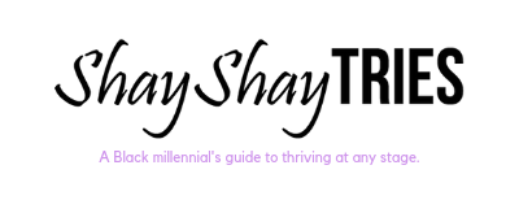
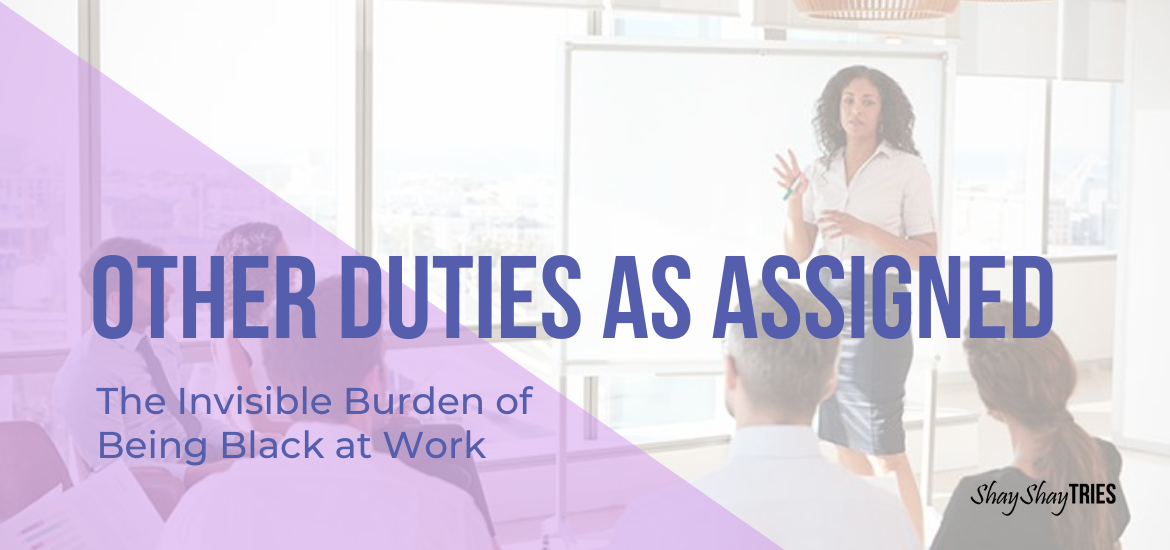

[…] to be part of the Black cultural zeitgeist is not an easy feat. I alone can think of at least a dozen think pieces I could write on such a show. However, as we arrive at the end of an era, what resonates with me […]